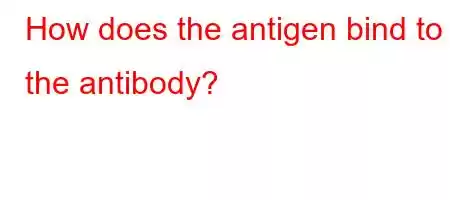Additive How does the antigen bind to the antibody?
Contents
How does the antigen bind to the antibody?
The bonds that hold the antigen together with the antibody binding site are of a non-covalent nature. These bonds are hydrogen bonds, electrostatic bonds, van der Waals forces, and hydrophobic bonds. Multiple bonds between antigen and antibody ensure that the antigen binds tightly to the antibody.
What is an antigen and what is it used for?
Antibodies surround antigens and prevent harmful substances or microorganisms from acting. Extracellular elements of the immune system, such as the complement system, adhere to microorganisms and kill them by means of antibodies. They are structures that can combine with antibodies produced for them and sensitive T cells.
What are the types of antigens?
What are the types of antigens?
POLYSACCARIDES: Generally, they are not good antigens. Since they are mobile in structure, they can easily lose their complex structure. NUCLEIC ACIDS: They show antigen properties. VIRUS ANTIGENS: They are capsomeres that form the cover of the virus.Where does the antigen bind?
If the antigens are attached to the thymus, the antigenicity feature appears if they bind to T lymphocytes. Non-thymus-bound antigens are some endotoxins and polysaccharides. They do not bind to T lymphocytes. They show antigenic properties by binding to B lymphocytes.
What is the antigen part with antigen-antibody coupling called?
Antigen-antibody coupling is specific. chemical bonds). Antigens have special chemical groups that determine their specificity against their antibodies. They combine specifically with junction sites called 'Paratopes' at their aminoterminal ends.
What do antigens and antibodies mean?Antigens can be defined as diseased cells found in the body. Antibodies are proteins that fight these diseased cells in the body. The task of antibodies is to settle on the antigens appearing in the body and neutralize them.
Which substances are Antigens for the body?Antigens are usually protein and polysaccharide parts of living organisms or large molecule proteins and carbohydrates, nucleic, lipidic parts or products attached to them. The most important antigens are those that enter the structure of bacteria.
Do T lymphocyte present antigen?
They are cells that present antigen peptide to cd4 positive T cell with class two mhc molecules. It is the name given to the cells that present antigen to T lymphocytes with the MCHs they contain. These are macrophages in the primary immune response and B lymphocytes in the secondary immune response. T lymphocytes do not have the task of presenting antigens.
How many types of antigens are there?
The most important and potent ones are A-B and Rh antigens. Blood group classifications are evaluated especially on these two antigen groups. A-B Antigen Typing: It is the blood group classification made according to whether the erythrocytes in the blood contain A and B antigens.
Read: 196


